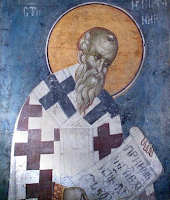If the departed cannot repent after their death why do we pray for them?
We know that the Apostle Paul prayer his deceased friend Onesiphorus. Writing to Timothy he prayed, “The Lord grant to him that he may find mercy from the Lord in that Day” (2 Tim 1: 18).
St. Epiphanius of Salamis, writes the following about two decades later (c. AD 374): Useful ... is the prayer fashioned on their behalf, even if it does not force back the whole of guilty charges laid to them. And it is useful also, because in this world we often stumble either voluntarily or involuntarily, and thus it is a reminder to do better.
Are there exceptions?
The Church also prays on behalf of the one who is passing on, for him to be forgiven any sins which he may have committed which were not of the degree that leads to death [cf. 1 Jn 5: 16– 17]. In our services we continually pray for the departed.
So are there sins that may not lead to death? Some say uncompleted sins, sins that have not been fully carried out. Or, sins of ignorance, sins committed unintentionally, or sins that are latent, or sins of negligence, for example.
The Fathers of the Orthodox Church generally teach, that we must make our choice for or against God in this life. Once we have passed to the other life we will have no opportunity to escape from hell if we have not repented in this life.
What good do our prayers for the dead accomplish?
Most of the Fathers say that our prayers for the departed if they are sinners can lessen their suffering but not actually release them from their sinfulness.
Testimony from Mother Erene
Mother Erene, in a conversation with a previously departed nun, Mother Martha, asked her, “Why do you not hold Liturgies for me?”
“I won’t be given any benefit because everyone will be given according to his or her work. But when I feel that you are thinking about me and praying for me, I come among you during the Liturgy and feel happy. I love being among you and seeing you. And as I pray for you, I like to feel that you remember me in your prayers.”
Intercessory prayer remains a mystery.
Metropolitan Kolistos Ware says prayer is a mystery:When one living person prays for another living person, we do not understand the manner whereby such prayer proves efficacious.
We cannot fathom the precise relationship between the act of prayer, the free will of the other person, and God’s grace and foreknowledge.
Nevertheless, from our personal experience we know that intercession between the living is effective, and we continue to practice it.
The fact, then, that we do not know exactly how our prayers benefit the dead is not a reason for ceasing to pray for them.

No comments:
Post a Comment
Note: Only a member of this blog may post a comment.